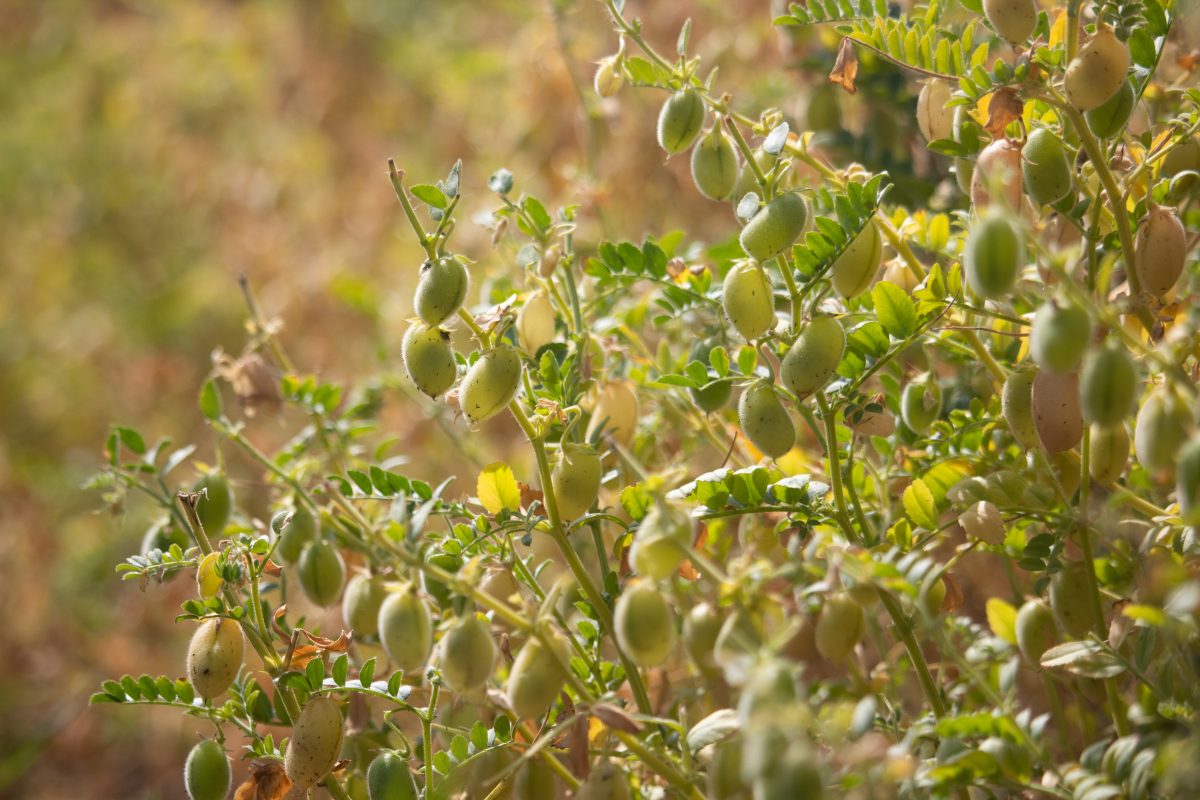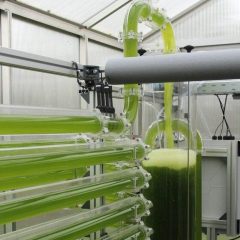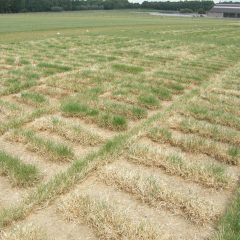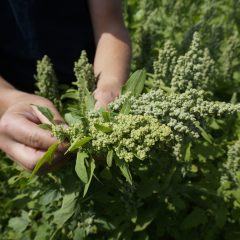Research project Building a local chickpea processing chain

General introduction
The KIKET project has shown that local cultivation and processing of chickpeas in Flanders is technically feasible, but is not yet profitable due to high prices and widely varying yields (0 to 3-5 tons/ha). The project made important steps to develop cultivation knowledge, suitable variety selection and mechanization. In addition, a local chain was established, resulting in the successful marketing of Flemish falafel and hummus. These results provide a basis for further sustainability and economic strengthening of the chain.
Research approach
KIKET built on the insights from the KIK-Love project and focused on both cultivation and market development. Cultivation trials were conducted to identify suitable varieties and cultivation techniques for Flanders. Commercial inoculums were also tested, although their effect still requires further validation. In parallel, a chain was set up with actors before and after the farm, including processors and retailers. This led to the development of an inclusive business model with transparent pricing that encourages cooperation within the chain and builds trust.
Relevance/Valorization
The results provide concrete tools for farmers, processors and retailers who want to play a role in the Flemish chickpea chain. The business model and chain collaboration can serve as a blueprint for other crops or regional initiatives. Further optimization of growing techniques and seasonal yield improvement are crucial to increase profitability and firmly position the Flemish chickpea in the market.
Financing
Vlaamse Overheid Departement L&V









